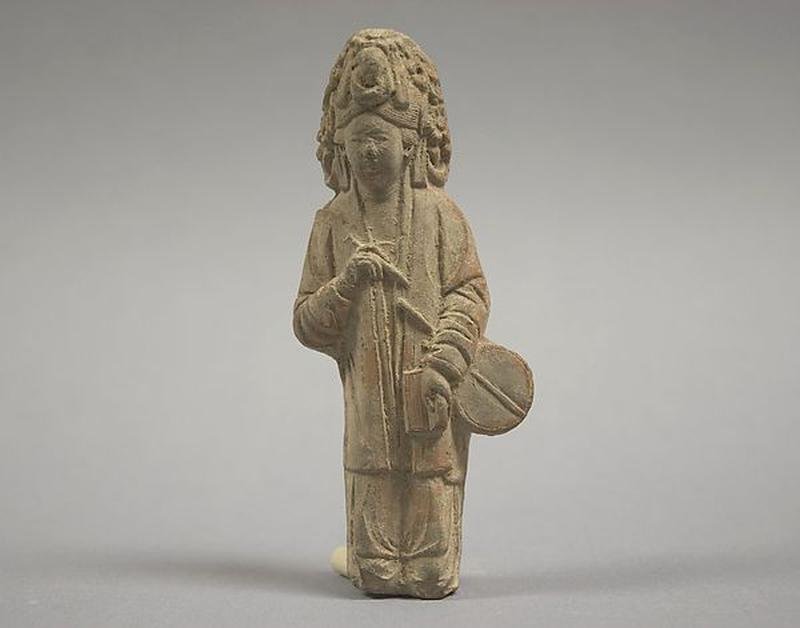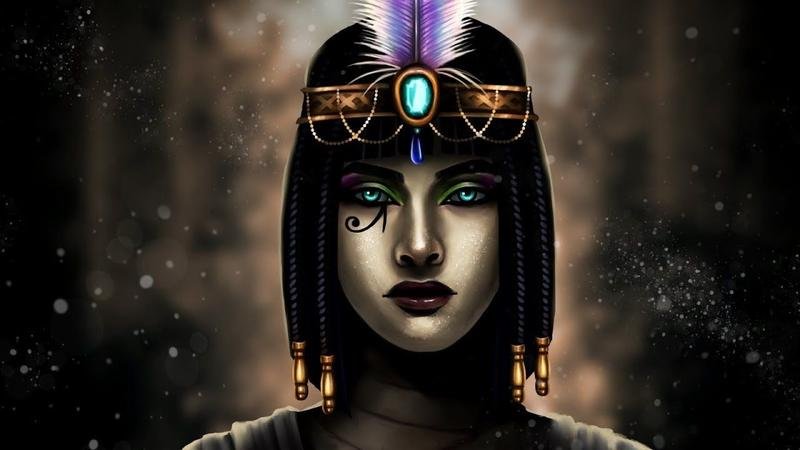THE goddess of music is just a few special people, who make you feel like everything will be alright at that moment. They can sing as if no one else is listening. THE goddess of music doesnt live in any particular place, but instead on the moondust and even in your dreams.
In this article, I will talk about “Goddess Of Music”. Let’s start.
Share This:
Share This:
The goddess of music has been associated with all kinds of activities in different cultures.
In ancient Greece, she was the goddess of music and dance. She also presided over festivals and celebrations, as well as the arts and crafts. She was worshiped in the form of a statue that stood in a large temple at Delphi.
In Rome, she was called Apollo’s sister and presided over singing contests. She also had a special relationship with the Muses, who were nine Greek goddesses who represented different aspects of artistic creativity.

Like This:
She’s the goddess of music. She can be a little touchy, but she’s not as bad as people make her out to be. She loves to play her lyre and sing.
Like This:
Her favorite color is red and she wears a crown of flowers in her hair.
She lives on Mount Olympus with all the other gods and goddesses in Greece.

Related
Athena, goddess of wisdom and war, was born of Zeus, who had swallowed her pregnant mother Metis (wisdom). Zeus feared that Metis would bear a son who would overthrow him like he had overthrown his own father Cronus, so he forced her to give birth to Athena by chewing on an olive seed.
Athena sprang from Zeus’ head fully clad in armor. She was armed with a mighty lance and a shield decorated with a gorgon’s head. Athena fought in many battles alongside the heroes of Greek mythology and gave them advice on how to defeat their enemies. She also taught them how to cultivate the arts and sciences.
Athena’s symbol was the owl, which she used as her messenger because it could see at night and travel silently through the air. The owl also represented intelligence, which is why so many statues of Athena were carved with owls perched on top of their heads or outstretched wings resting on them.
FAQs for Goddess Of Music
Now that you understand “Goddess Of Music”, let’s move on to the FAQ section.
Who Is The Goddess Of Music In Greek Mythology?
The Goddess of Music is a minor goddess in Greek mythology, who is said to have been created by the Muses themselves. She can be found in many places, including the mountains and forests. Her only purpose is to bring joy to all those who hear her music.
The Goddess of Music can be found in many places around the world, but she prefers to spend most of her time on Mount Olympus. Here she spends her time playing music for all those who live there and making sure that everyone has a good time at parties. However, she does leave occasionally to go and visit other gods or goddesses who need cheering up.
She also enjoys going down to earth every now and again so that she can make people happy with her music. She often travels around with Orpheus to help him play his lyre as he travels through Greece looking for his wife Eurydice after she was killed by a snake bite.
She also often plays music for Persephone (Persephone) when Demeter (Demeter) isn’t around because she knows how much Persephone loves dancing too much!
Who Is The Roman Goddess Of Music?
The Roman goddess of music is a deity that is not very well known, compared to other Roman gods and goddesses. This is mainly because she was not as important in Roman society as the other gods and goddesses were.
The name of this goddess is Terpsichore. She was also known by her Greek name, which was often used in Roman times, Terpsichore. Her name means “delight in movement”. In Greek mythology, she was one of the nine Muses, who were the daughters of Zeus and Mnemosyne. In Roman mythology, there are only three Muses: Calliope (epic poetry), Clio (history) and Erato (lyric poetry).
In Greek mythology, Terpsichore was the Muse of choral song and dance, which means that she inspired people to perform dances during religious ceremonies or celebrations for entertainment purposes. The Romans took this idea from the Greeks but changed it slightly so that she inspired people to perform dances during religious ceremonies or celebrations for entertainment purposes as well as during everyday life.
She was also responsible for inspiring people to sing or play musical instruments such as flutes or harps during these occasions too.
Who Is The Greek God Or Goddess Of Singing?
Who Is The Greek God Or Goddess Of Singing?
Image: Wikimedia Commons
The Greek god Apollo is the god of music and poetry. He was also a great archer, healer, and prophet. Apollo had two temples in Delphi, which were dedicated to him. One of them was named Pytho, which was built on top of the oracle of Delphi.
Apollo was also known as the Sun God because he was believed to be the son of Zeus and Leto (a Titaness). He is often shown riding on a chariot pulled by four white horses or driving his own golden chariot through the sky with his sister Artemis (Artemis).
The Greek goddess of music was Terpsichore. She was one of the nine Muses, daughters of Zeus and Mnemosyne (memory), who were the personifications of the arts and sciences.
Terpsichore was the Muse of choral song, hymns and ballads, lyric poetry and dance. Her name means “delight in dancing.” She was also known as Polyhymnia (“of many hymns”), which indicates that she presided over different types of songs: religious hymns, war songs and other types of lyrical poetry.
The Roman equivalent of Terpsichore was called Thalia (“good cheer”).
Who Are The Gods Of Music?
Music is one of the most powerful forces of nature. It has the power to make us happy, sad, angry, and every other emotion in between. Music can be used as a form of healing, as well as a way to help people overcome their fears.
The Gods of Music are beings who have the power to control music and sound. They are often worshipped by musicians and people who love music.
As with all gods and goddesses of ancient Greece, there are many different versions of how they came into being and what their purpose is in the world. In some stories they were created by Zeus himself; in others they were created by Apollo; while still others say that they were born out of Chaos itself!
In any case, these deities have been around for thousands of years and will continue to exist for thousands more!
There are many gods of music, but these are the most well-known:
Apollo is the god of music, poetry, healing and archery. His sister Artemis was also a great musician. He’s often depicted as a young man with a lyre and an arrow in one hand and a bow in another.
Aphrodite is the goddess of love and beauty. She had a beautiful voice and played the kithara (a stringed instrument like a lyre).
Ceres is the goddess of agriculture and fertility and also has a connection to music because she invented the pan pipes.
Dionysus is known as the god of wine, beer and theater. He was also very good at playing the syrinx (pan pipes) as well as other instruments including drums, cymbals and pipes.
Hephaestus was known as “the blacksmith god” because he created instruments out of metal — especially brass instruments like trumpets or horns — which made them sound very loud!
Who Is The Egyptian Goddess Of Music?
Who Is The Egyptian Goddess Of Music?
The ancient Egyptians believed that music was a gift from the gods. They believed that music had the power to heal, so they even used it as medicine for the sick. Music was also very important in their rituals, especially funerals, where a person would be buried with a set of flutes and drums.
The Egyptian goddess Hathor was thought to be the goddess of music and dance. She was associated with several other gods, including Horus and Ra (the sun god). Hathor’s name means “House of Horus” or “House of Hor-Ra,” meaning she was associated with all things related to Horus and Ra. She was also known as the “Lady of Dendera,” since this is where her temple was located.
Who Is The Greek Muse Of Music?
Music is one of the oldest forms of art, and it has its own muse. The Greek Muse of music was Terpsichore, the daughter of Zeus and Mnemosyne (the goddess of memory). She was also called “the delight (terpesthai) of men and gods.” Her name means “delighting in dance.”
Terpsichore’s job was to inspire people to sing and dance, which she did by dancing herself. According to some myths, she would teach young girls how to dance with her mother.
According to another myth, Terpsichore fell in love with a man named Lykourgos (Lycurgus). This angered Zeus because he believed that mortals should not have affairs with gods. He changed Lykourgos into a wolf because he couldn’t stand seeing him with Terpsichore anymore. After this happened, the two were separated forever.
The Greek goddess of music is known as Terpsichore, which means “enjoyment in movement.” The name suggests that she was responsible for the dance and other physical expressions of joy. She was also known as the Muse of lyric poetry and comedy, which might seem odd considering that comedy is a form of drama. However, it’s possible that she was more interested in the lyrics than the plot or characters.
Terpsichore was one of the nine Muses who were born from Zeus’ head after he swallowed his wife Metis. She was associated with several other goddesses throughout history, including Aphrodite and Hera.
Her Roman counterpart was called Thalia (or Flora), who represented fertility and beauty rather than music itself.
Conclusion for Goddess Of Music
The goddess of music has come down to earth to spend some time with us, and she is going to sing her songs for us again, but first we are going to be in a parade led by the goddesses themselves. I am excited because I have never seen the goddess of music before, and I really want to see what they are all about. From what I hear her voice is magical, and she plays a lute that was carved from wood on a Divine Tree.
Thank you for reading, and I hope you get the point of “Goddess Of Music”. If not, please contact me or leave a comment below. I would be pleased to help in any way I can.





